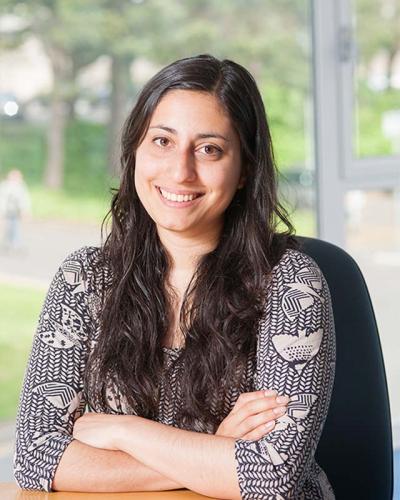Training resources for researchers that want to learn to code
Posted on 11 November 2021
Training resources for researchers that want to learn to code
 Photo by Prateek Katyal on Unsplash
Photo by Prateek Katyal on UnsplashBy Will Hulme, Aleksandra Nenadic, and Selina Aragon.
This blog post is part of the series of resources on learning to code, hosted as part of the Research Software Camp: Beyond the Spreadsheet.
Learning to code can be daunting and often it’s hard to know where to start to look for resources. As part of the Research Software Camp: Beyond the Spreadsheet, we’ve collated the training resources below for researchers that want to learn to code. We’ve focused on resources that can aid researchers to work better with spreadsheets or help them move beyond them. The resources below include online lessons and tutorials, guidance and reference resources, and communities and networks that are out there to help.
Some of these resources have been mentioned at the Research Software Camp panel discussion, workshops, presentations, blog posts, and guides. We hope that by collecting them all together in one single place, this becomes a helpful reference resource in itself.
Learning to code training
This section includes training resources such as self-guided tutorials, online and in-person (pre-pandemic) taught materials, and video recordings.
The Carpentries teach foundational coding and data science skills to researchers worldwide:
The Carpentries Incubator - an open repository for sharing community-developed lessons.
Programming Historian hosts novice-friendly, peer-reviewed tutorials that help humanists learn a wide range of digital tools, techniques, and workflows to facilitate research and teaching.
Coding Club offers Data Science training for ecologists and environmental scientists.
DataScience for Doctors teaches doctors, nurses, and other health care professionals basic concepts, skills, and tools for working more effectively with data.
HPC Carpentry teaches basic skills for high-performance computing.
Code Refinery is a training and e-Infrastructure platform for Research Software Development.
The Netherlands eScience Center offers a range of curated workshops and training courses to researchers and support staff at every career level.
This 3-minute video tutorial shows how to use structured table references in Excel.
This 3-minute video explains what a computation graph is.
Free introductory book on Python programming for complete beginners.
This 10-minute introduction to the Pandas Python library is aimed at mainly new users.
The Python Data Science Handbook by Jake VanderPlas is a comprehensive book on data analysis in Python – available online under a CC-BY-NC-ND license.
Andrew Steward, SSI Fellow, has developed a series of introductory courses and videos titled "R, Open Research, and Reproducibility."
This Carpentries-style course on “Introductory Statistics for Public Health,” developed by Ezra Herman, and SSI Fellows Emma Rand and Andrew Stewart.
The Ed-DASH project has developed a Data Science training programme for Health and Biosciences researchers.
Training for CDTs and PhD programmes
ELIXIR-UK provides data-management-related training for life sciences.
HDR UK offers training in Health Data Research via their Careers and Training page.
Alan Turing Institute offers training for CDTs (Connections Programme).
The Helmholtz Association offers key skills training, three multi-day workshops, which are designed to fit the different stages of a doctoral program.
Guidance and reference
The following link to guidance or reference material that can be accessed online.
The Turing Way is an open source, open collaboration and community-driven handbook to reproducible, ethical and collaborative data science.
The Data Stewardship programme run by TU Delft, the Netherlands. Data Stewards provide disciplinary support for research data management and sharing across the campus.
The Digital Curation Centre has over 10 years experience delivering skills development for the HE sector in all aspects of Research Data Management (RDM), Digital Curation and RDM service development.
European Open Science Cloud (EOSC) lists the materials used in the EOSC training-hub events.
Community
The support of a community can make all the difference when taking the first steps into coding. Listed below are community meetings and networks available for researchers around the world.
The Hacky Hour is an informal series of regularly scheduled meetings, where researchers come and discuss IT or Tech ideas for accelerating their research and can be co-located with other workshops/conferences. There are many Hacky Hours now running at different institutions and countries.
ReproducibiliTea: The Journal Open Science clubs around the world that help researchers discuss diverse issues, papers and ideas about improving science, reproducibility and the Open Science movement.
The NHS-R supports the learning, application and exploitation of R in the NHS through workshops, video tutorials and providing a platform for discussion and sharing of developing best practice solutions to NHS problems.
Reprohacks are one day, hands-on Reproducibility Hackathons.
The Society of Research Software Engineers works to increase software skills across everyone in research, to promote collaboration between researchers and software experts.
International Research Software Engineering associations – The RSE campaign began in the UK, but it soon gained interest from groups around the world who wanted to gain recognition for research software engineering in their own countries.
Research Software London is a regional community for RSEs in London and the South East who write or use scientific software or want to improve their technical computing skills and knowledge.
Other curated lists
ARCHER at the Edinburgh Parallel Computing Centre (EPCC) offers ARCHER courses but also lists online training materials.
HPC-UK lists not-for-profit providers of HPC training in the UK.
N8 Centre of Excellence in Computationally Intensive Research (N8 CIR) brings together links to online training and resources that people may find useful to access.
If there’s something that you’d like to see included here, let us know by email or tweet @SoftwareSaved.



